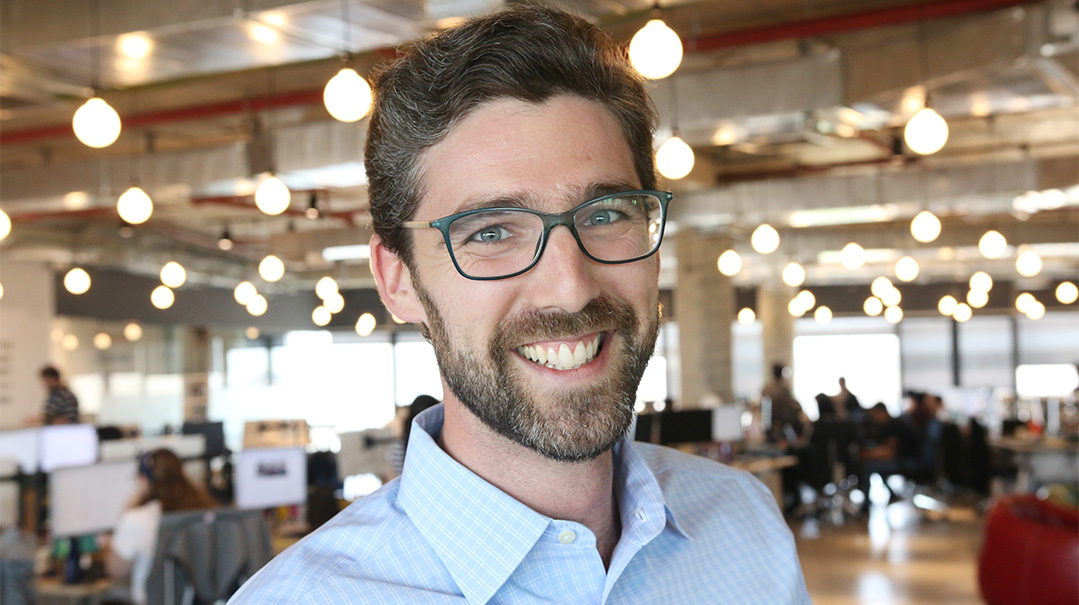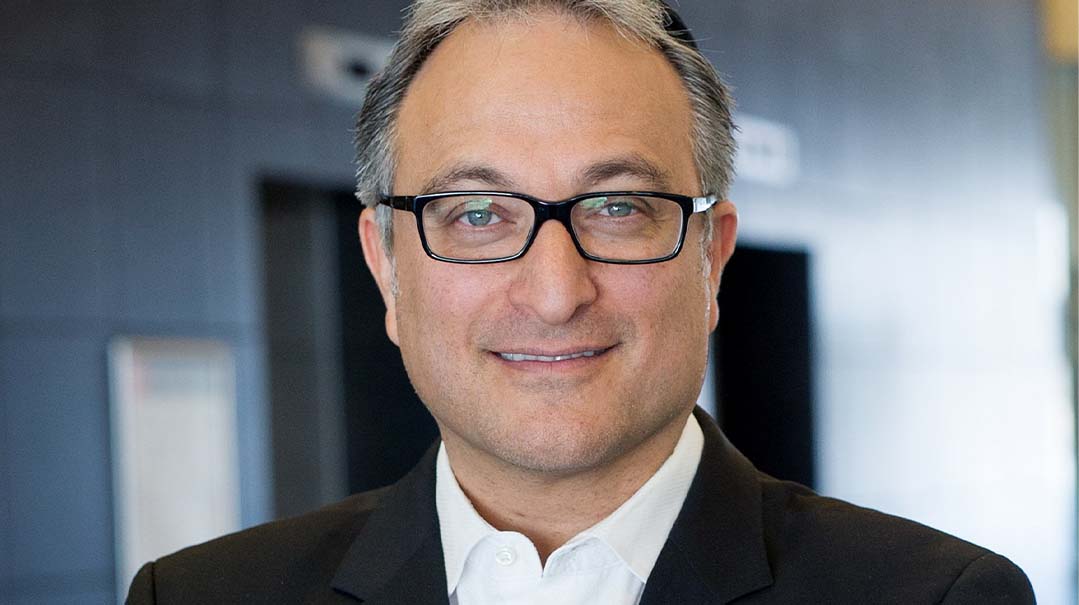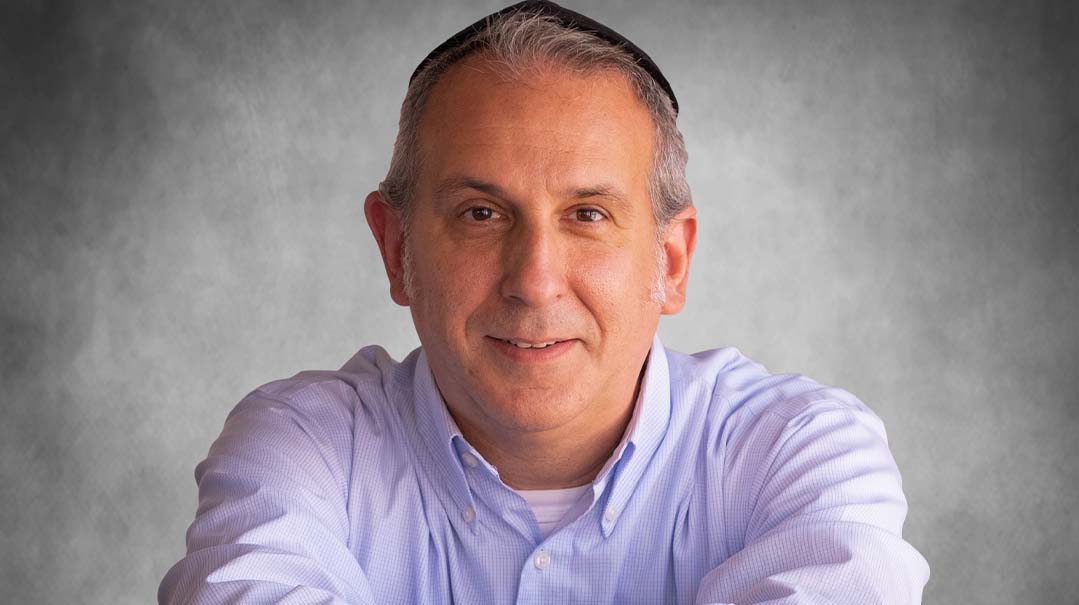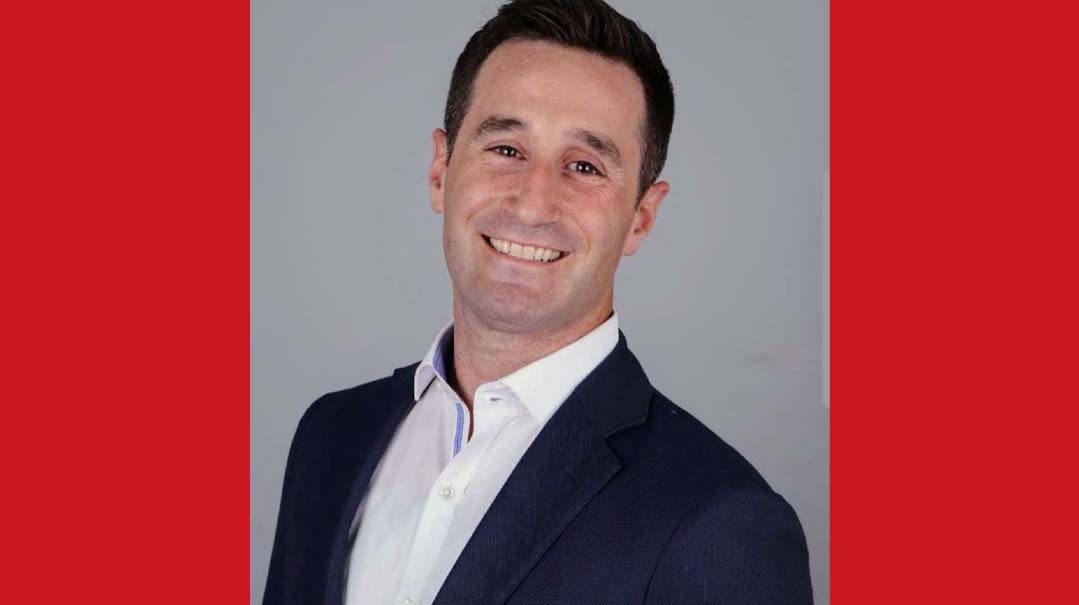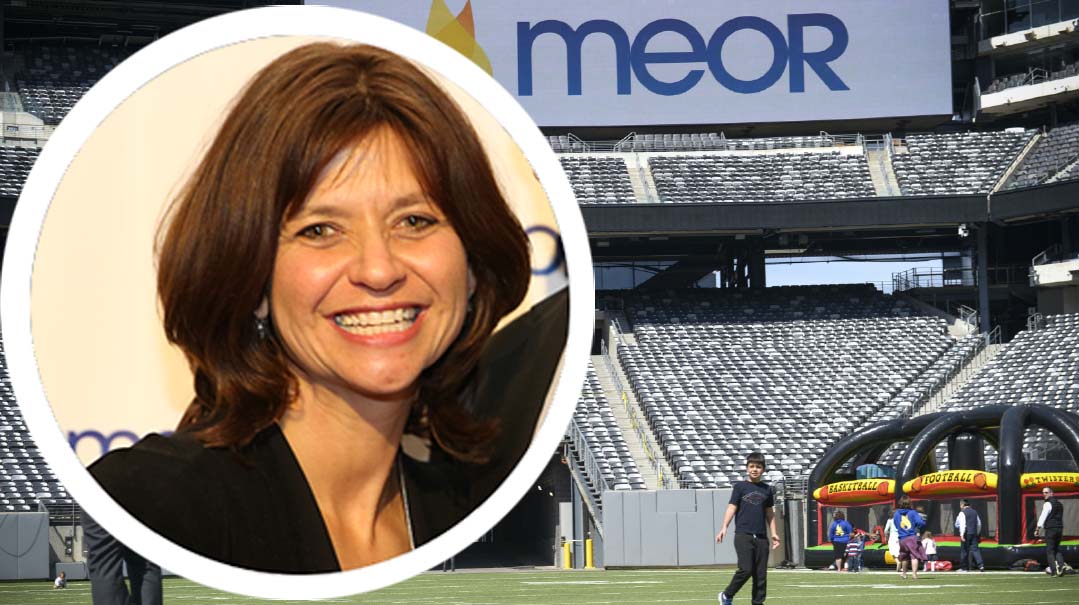Work/Life Solutions with Dr. Yehudit Abrams

"If I really wanted to be an eved Hashem, I couldn’t afford to think small about myself"
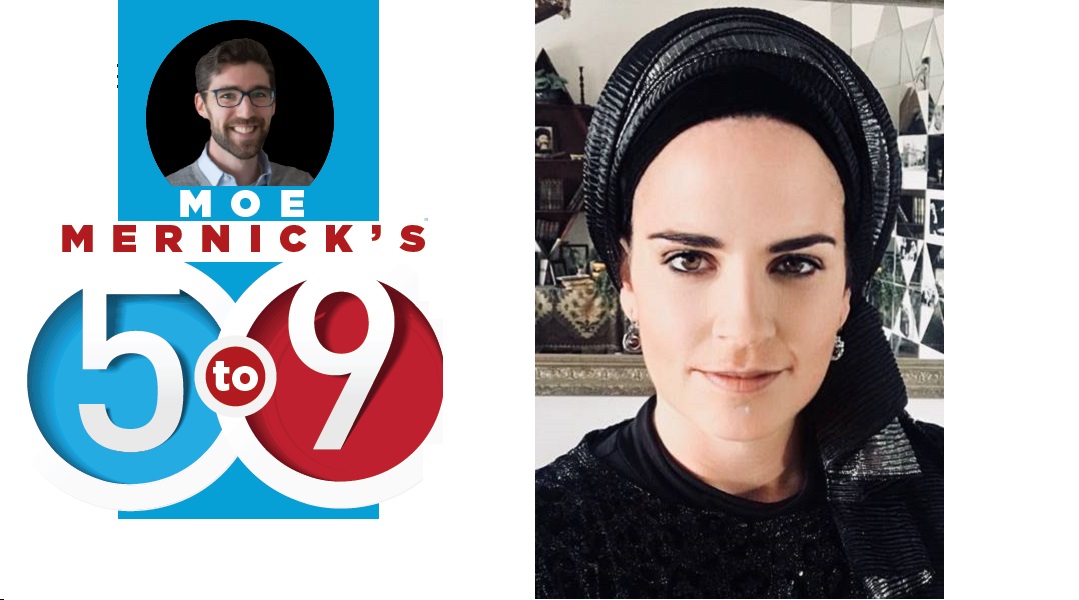
Who Dr. Yehudit Abrams, founder of MonitHer, the first at-home, personal-use prescription monitor for early detection of breast cancer in high-risk women and survivors.
What Yehudit’s professional path was unusual and inspiring. Following medical school, she was accepted to an exclusive program called Singularity University, which provides broad, interdisciplinary exposure to a number of fields, including biotechnology and bioinformatics, nanotechnology, medicine, neuroscience, artificial intelligence, robotics, and cognitive computing. With a $25,000 scholarship from Google, she got a chance to hear first-hand from tech giants such as Larry Page and Vint Cerf, as well as a number of top scientists and entrepreneurs. She then embarked on a two-year biomedical scientist post-doctoral position at NASA Ames, a major research center in Silicon Valley, working on medical devices supporting long-duration space missions. After gaining years of experience in ultrasound research, Yehudit decided to leverage her engineering background, international perspective on impactful medicine, and fierce entrepreneurial spirit to launch MonitHer — a startup that would revolutionize one of modern medicine’s most perplexing challenges.
Where Raised in a spiritual, though non-Jewish home in Boise, Idaho, Yehudit made a dramatic turnaround, eventually landing in Jerusalem. As you’ll see from her story, she had some pivotal stops along the way, including mingling with tech elites in Silicon Valley and conducting medical relief missions all over the world.
Why While attending the WeWork Creator Awards in Jerusalem two years ago, I was overwhelmed by what happened that evening: An obviously frum, modestly dressed woman was passionately presenting her medical device startup in front of 5,000 people, including WeWork’s famous founder, Adam Neumann — and she was awarded the coveted grand prize of $360,000! Who was this woman? What was her journey? How did she work at NASA and end up living in Meah Shearim? I would later discover many fascinating details of Yehudit’s journey, and it’s a privilege to share them with you.
1 of 9 What opportunities or personalities played a role in your career?
I was born and raised as a Quaker cowgirl in Idaho, but I always had religious questions and was a searcher, even as a kid. At one point my cello teacher, who wasn’t Jewish, gave me the music to Kol Nidrei. Without knowing it was a Jewish piece or that I was born on Yom Kippur (which I discovered many years later), I got goosebumps all over my body. This is the short version of how I was introduced to Judaism.
A couple years later, while learning about the duties of the Kohanim, I wondered if our small congregation in Boise had a Kohein, as we did not even have a minyan. I opened the phonebook to find that the only person in Boise with the name “Cohen” lived right across the street from me. And so began a 25-year-long friendship with Reuben Cohen, who became my surrogate father. I grew up poor and didn’t believe that a poor latchkey kid could become a physician, although I always wanted to be a doctor — but Reuben believed in me, and built within me the confidence to believe in my dream to study medicine.
Reuben hadn’t been religiously affiliated, but he started coming to shul with me, and instantly became a valued member of the community. Although Reuben lived as a pauper, he was actually wealthy, and donated all the profits from his investments to schools and orphanages in Israel he had never seen. He knew I needed to be Jewish and funded our joint trip to Israel, where I would eventually undergo my conversion under the supervision of Rav Avraham Auerbach (son of Rav Shlomo Zalman ztz”l).
A few years after my conversion, I was living in the chassidic neighborhood of Geula, and was getting ready to start shidduchim, when a friend of mine, Lori Shapiro — now an important Jewish leader in Venice, CA — encouraged me in my dream to become a doctor. I decided to return to the US for my education. I admit that part of me regrets not getting married younger and having a big family. But even as a kid, I had this sense that I had to work for G-d to create positive change in the world. Now, as a Jew, I had the connection with Hashem I needed to make that change a reality, and I had to be true to that desire within myself first.
My grandmother, Ruth Harris, who passed away recently at 98, also played an important role in my life. She was a woman of wisdom and humility who didn’t utter an unnecessary word. She came from generations of political leaders and dignitaries, and was a solid matriarch of the family. During a stage of rebellion as a teen before I discovered Judaism, I shaved my head and pierced my nose. She didn’t bat an eyelash, made it clear she didn’t agree, but also that she loved me all the same. This empowered me to choose to become the person I knew I wanted to be. When my friends started with hard drugs, I was able to leave them and start working hard in school, because the other way was so inconsistent with who my grandmother believed me to be, who I wanted to be. Through her steadfast love and example, she taught me to believe in myself.
Years later, when traveling to the Netherlands as the principal investigator (PI) for a clinical study, I would stay with the Sanz- Zhmigroder Rebbe of Antwerp for Shabbos. He was another great influencer in my life. He advised me to make some extraordinary sacrifices, risking heavy losses, in order to be able to take family to Eretz Yisrael. Without knowing if it would work, I followed his suggestion, and a month later, we packed our bags and made aliyah.
2 of 9 Which three character traits have played a key role in your career path and success?
Thinking out of the box. I grew up outside of the box — or rather, I don’t think I was ever aware of a box until much later in life. My mother was never afraid of what other people thought, and lived her life as such. She was steadfast and unapologetic about her faith and beliefs, and openly gave G-d credit for the good in her life. I grew up with this independence instilled deep within my psyche. Consequently, I never really fit in, and decided early on to not even try, and to proudly (though quietly) march to my own drum. I feel this early sense of independence and willingness to listen to my own ideas, rather than go with the status quo, gave me the foundation and courage to explore my own creative process, and to value and develop my ideas.
Faith. It was Yom Kippur night at the Kosel in 1993 where I told Hashem that I would serve Him all my life if I would just become a Jew. From that moment on, through all my trials and tribulations, my underlying prayer has been, “Show me what You need me to be.” First, I was going to be an engineer, and I thought, yes, then I will have what it takes to fully serve Hashem with all my potential. But then I became a doctor, and then went on to become a NASA scientist. There were many catastrophic failures along the way that I would later understand to be key to my success. But all the while, it was never enough. I kept feeling like there was more I needed to do to serve Hashem. And then it hit me, during my first Shabbos in Israel after making aliyah.
After all these years of asking Hashem to show me what to do, who to be, the answer woke me in the middle of a dream. My greatest service to Hashem was not as an engineer, doctor or scientist trying to save the world. My primary task in this world was to be the best Jew I could be. Once I turned my focus toward fulfilling Hashem’s will for me, my self-value became independent of accomplishment, and instead became based on fulfilling my primary purpose in this life — to be the best Jew I can, while recognizing that being a good Jew is a process, not an achievement, an evolving cyclic effort.
Insatiable appetite to question. When I was a kid, my mother told me not to question Christianity, even though it seemed wrong to me, and ultimately prompted the exploration of other religious observances — and eventually conversion to Judaism.
Entering medical school as an engineer, I was appalled that so much of medicine was based on evidence rather than equations, with variables undefined, and constants never constant. It was the first seed that got me desiring another approach to understanding human physiology. Rather than basing knowledge upon snapshots in time (one lab, one image, one interaction with a patient), we needed dynamic, real-time, user data on the body, in order to fully understand how disease forms, and therefore, how to prevent it. This was the original seed for MonitHer.
After my cousin, a nurse practitioner in women’s health and breast cancer survivor, died while I was at NASA working in ultrasound, I began to question if ultrasound could have a role in early detection. That year, mammography guidelines were changed from once every year to every two years, because 80% of biopsies were benign. Meanwhile though, over 80% of cancer was being discovered in the invasive state, complicating treatment and decreasing survival rates. I realized it was a limitation in the imaging. Obviously, more biopsies would not be the answer to earlier detection. Detection methods themselves, imaging, needed to get better.
Monthly imaging in the home could enable the earliest detection possible, while likely reducing unnecessary biopsies. I knew there could be a way to make it happen.
But a family tragedy occurred shortly after beginning my medical residency, and I needed to withdraw. Suddenly, instead of being a NASA scientist and doctor, I became a single mom dependent on family help. But it also meant that Hashem had given me the time to develop the idea. Now, seven years later, the market and technology exist to bring early detection home. With a world-class team, including the former CTO of GE Global Ultrasound, once funding is obtained, we will create our home-use imaging prototype, worn one minute a month, that will create an MRI-like image for the prescribing physician to ensure the earliest detection possible. We hope to pilot it by 2023 in Israel and the UK, prior to FDA approval and US pilots.
6 of 9 What is the most inspiring feedback you’ve ever received? Did that impact what you did next?
After medical school, when I was at Singularity University, I had the chance to sit at a table and share my ideas with people like Larry Page and Vint Cert, who listened and believed in my ideas and helped me to realize that thinking small about myself was not allowing me to act big. I realized that if I really wanted to be an eved Hashem, I couldn’t afford to think small about myself. I later realized that if I made it about me, then indeed I was small, but if I made it about service to Hashem, then my level of impact in the world would be proportional to the level I could humble myself to Hashem’s will. When it was no longer about myself, I became anything but small.
7 of 9 If you were asked to deliver a TED Talk that would be watched by 50 million people, what topic would you choose to speak about? Why?
The more information we have, the more informed our response may be to that information. Today we know what you’re going to buy, where, when, why, how, and with whom, because we have granular user data. Unfortunately, we don’t have such data on the human body, thus our understanding is incomplete, and our approach to medicine is all too often based on outcomes, rather than full understanding.
Data from lifestyle, habits, genetics, and imaging will allow for a clearer understanding of how disease is formed, and subsequently, what must be done to reverse or prevent it. MonitHer provides this granular data by providing physicians a high resolution “movie” of all sorts of changes over time, combined with a lot of metadata. And so, it’s our hope not only to diagnose the cancer at its earliest diagnostic state, but to one day provide our users the information they need to prevent it. Doctors practice medicine, but only patients can practice prevention.
9 of 9 If you were advising a young man/woman hoping to launch a career as an entrepreneur, which “dos” and “don’ts” would you share?
As a Jew, I have a koach I didn’t have before my conversion, and this koach seems proportional to my level of dveikus. No matter what I do in This World, my level of impact is proportional to my ability to listen and trust Hashem, my G-d and my “gut.” Listen to it fearlessly, and Hashem will use you as His tool.
And, I would say, you don’t have to shy away from a career in technology because you feel you’re putting your dveikus at risk. Rather, change technology for the better, because that’s what Jews do. Our influence on technology has been largely absent because we have sheltered ourselves out of the fear of tainting our relationship with Hashem. Technology needs the strength of Torah influence. We must keep our dveikus with Hashem our priority. As we enter our careers, we can bring Torah into the equation, where it may be largely absent. Today, it’s nearly impossible to create the changes in the world that Hashem wants of us without the use of technology, and it’s our obligation to make it better.
(Originally featured in Mishpacha, Issue 818)
Oops! We could not locate your form.







